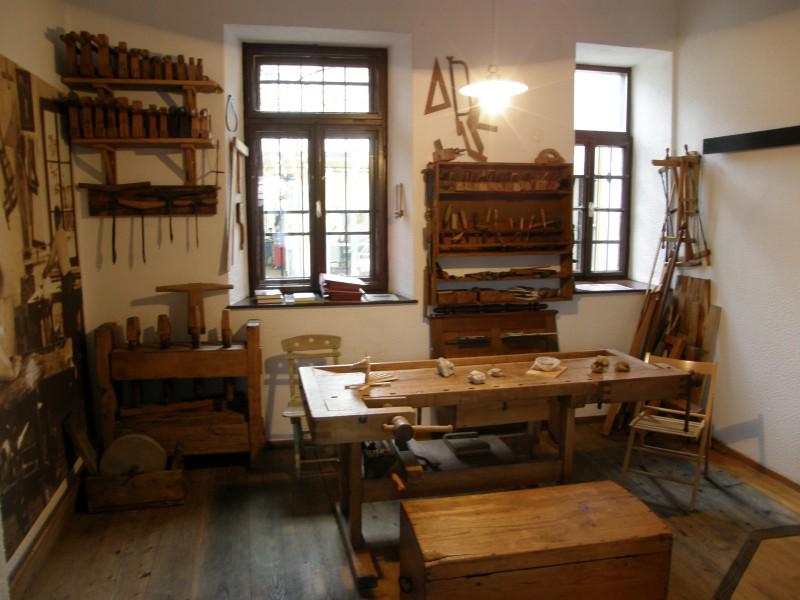
The woodworking trade in Solkan emerged in the mid-19th century. The proximity of the Trnovski Gozd forests assured an abundant supply of wood, and soon local workshops began to serve nearby towns. Many of them specialized; some worked only on large projects, while others focused on intricately carved wood or even a single product, such as coffins. Much of their work was designed for the needs of the relatively prosperous – and demanding -- Italian market.
At one point, more than 300 woodworkers were active in Solkan – almost one for every home. Their products were shipped to cities such as Trieste and from there as far away as Egypt by boat. The quality of the goods was known internationally.
Many young men in Solkan learned the trade as apprentices. They would typically spend three years with a master woodworker before setting up workshops of their own, and so the tradition passed on from generation to generation.
After World War II, the authorities built on the town’s tradition by setting up a large furniture factory. Ultimately adopting the name Meblo, the factory carried on the local tradition and taught young woodworkers the trade. But after Slovenia’s independence, Meblo could not compete with cheaper labor elsewhere and it shut its doors.
These days, only two woodworking workshops are officially registered in Solkan. But a small museum -- with an extensive collection of tools and a mockup of a typical Solkan workshop – serves as a reminder of the small town’s impressive history of woodworking.


































































